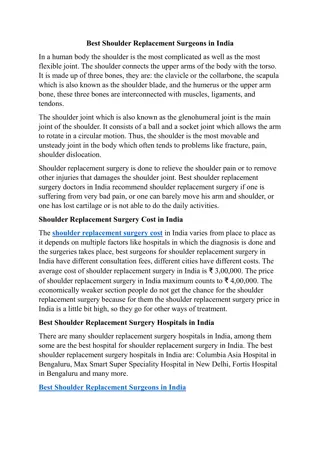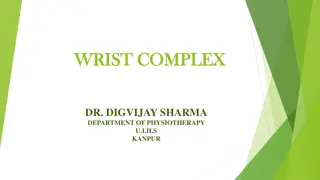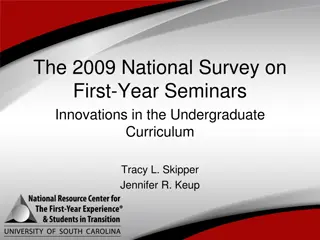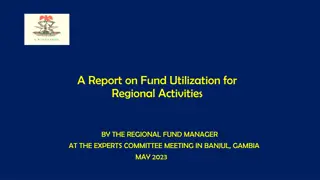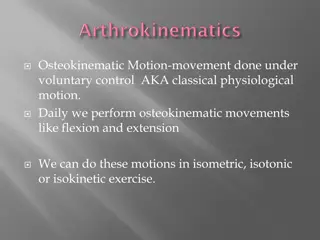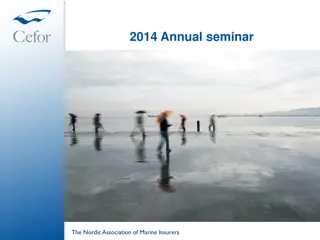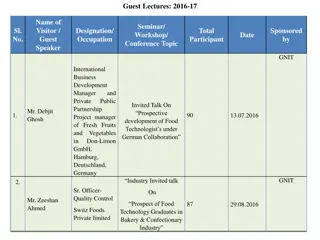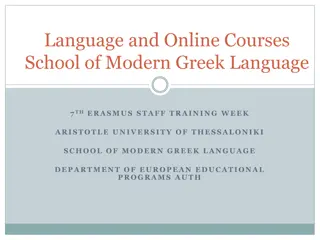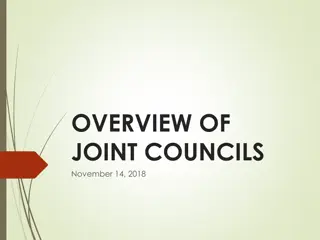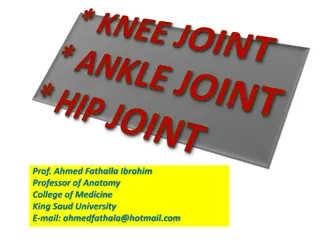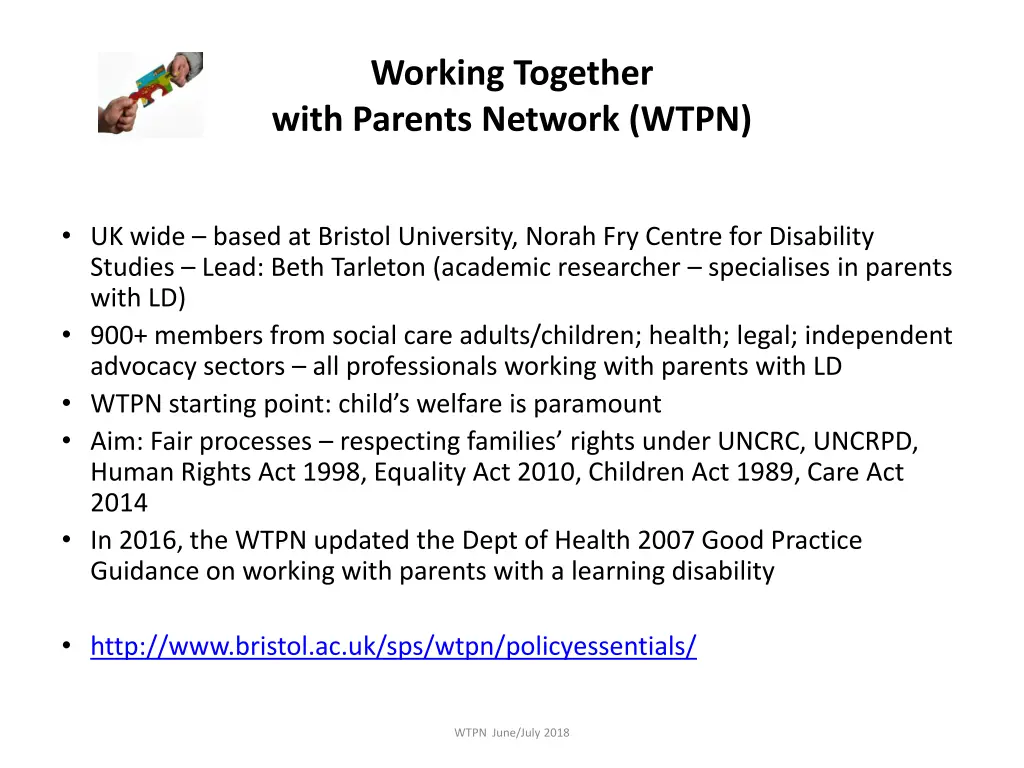
Understanding Parents with Learning Difficulties and Disabilities
Explore the work of Working Together with Parents Network (WTPN) at Bristol University, focusing on fair processes and respecting family rights when working with parents with learning difficulties. Learn about the challenges faced by these parents, research interventions, family situations, and outcomes for children in such families.
Download Presentation

Please find below an Image/Link to download the presentation.
The content on the website is provided AS IS for your information and personal use only. It may not be sold, licensed, or shared on other websites without obtaining consent from the author. If you encounter any issues during the download, it is possible that the publisher has removed the file from their server.
You are allowed to download the files provided on this website for personal or commercial use, subject to the condition that they are used lawfully. All files are the property of their respective owners.
The content on the website is provided AS IS for your information and personal use only. It may not be sold, licensed, or shared on other websites without obtaining consent from the author.
E N D
Presentation Transcript
Working Together with Parents Network (WTPN) UK wide based at Bristol University, Norah Fry Centre for Disability Studies Lead: Beth Tarleton (academic researcher specialises in parents with LD) 900+ members from social care adults/children; health; legal; independent advocacy sectors all professionals working with parents with LD WTPN starting point: child s welfare is paramount Aim: Fair processes respecting families rights under UNCRC, UNCRPD, Human Rights Act 1998, Equality Act 2010, Children Act 1989, Care Act 2014 In 2016, the WTPN updated the Dept of Health 2007 Good Practice Guidance on working with parents with a learning disability http://www.bristol.ac.uk/sps/wtpn/policyessentials/ WTPN June/July 2018
Parents with a learning disability or a learning difficulty? Meaning / preference / labels / practical consequences IQ based diagnosis of learning disability [70] triggers eligibility for some services and support A focus on learning difficulties , includes parents with a diagnosed learning disability and those with a milder impairment who struggle with the same issues of literacy, numeracy, abstract concepts, time, organisation and planning etc. but who lack a formal diagnosis and so are often not eligible for services and support. WTPN June/July 2018
MAY 2018 Parents with learning difficulties: Research and interventions Beth Tarleton and Nadine Tilbury 3
MAY 2018 Family situations Families with multiple issues complex cases Parents often abused in own childhood/vulnerable to exploitation Lack of support/education re parenting / social networks to support/ poor parenting role models Embarrassed by/harassed because of learning difficulty Social isolation and poverty more important than Learning difficulties No relationship between IQ and parenting ability over 60 Concerns about children usually neglect by omission 4
MAY 2018 Outcomes for children There is no consensus in the findings from studies reviewed about whether having a parent with intellectual disabilities [term used] inevitably results in poor child outcomes. Some studies suggest that these children will be disadvantaged by their parents low intellectual capacity; others suggest that once other factors are taken into account, such as heightened risk in pregnancy and poor birth outcomes, poverty and troubled parental childhoods, and social isolation and stigma, child development approaches population norms. (Collins and Llewellyn 2012 page 80) 5
MAY 2018 Outcomes for children A Different Childhood: Voices of 5 Adult Children of Parents with Intellectual Disabilities (PDF Download Available). Available from: https://www.researchgate.net/publication/315834634_A_Diffe rent_Childhood_Voices_of_5_Adult_Children_of_Parents_with _Intellectual_Disabilities www.supportingfamiliesid.com Researcher PhD child of parents with intellectual disabilities 6
MAY 2018 Majority of the families were at risk of losing custody of their children and that extended family or support services protected the family unit and provided valuable support to the children. Some of the children had additional responsibilities growing up and all attributed this as instilling a sense of maturity and responsibility. All of the adult children achieved typical adult outcomes which included the completion of high school or the equivalent, successful employment and significant social relationships. The adult children interviewed typically did not define their relationship with their parents in terms of disability or limitations and all maintained a strong relationship with their mothers with ID. 7
MAY 2018 Support for parenting Importance of social support and social networks, Benefits provided by parent support groups International call for parental supports (Lightfoot and LaLiberte, 2011; Tarleton et al 2006 and others) In the Uk: Parenting with support/Supported parenting in Scotland in accordance with Good Practice Guidance. Advocacy vital for parents if there are concerns regarding the welfare of the children. Tailored parental education has been shown to be beneficial. 8
MAY 2018 Scotland is leading the way Supported Parenting services projects piloted in 2017 included: Peer Support. Parenting support and capacity building at home. Mellow Futures Toddlers (adapted parenting programme for parents with learning difficulties focusing on the toddler years). Knowledge exchange between partners in the Fife Care Pathway for mothers and fathers during pregnancy and shortly after. Relationship counselling. 9
MAY 2018 Links for Scottish resources scld.org.uk/wp-content/uploads/2017/08/PARENTING-GUIDE- FOR-WEB.pdf www.scld.org.uk/wp-content/uploads/2016/02/Guide-to- Supported-Parenting-141014.pdf www.scld.org.uk/wp- content/uploads/2015/06/Supported_Parenting_web.pdf 10
MAY 2018 Research and interventions in England Valuing Parents support service: Better outcomes for children of parents supported by service. Mellow Futures: over the course of the parenting programme the level of concern for the welfare of the majority of children was reduced. https://www.mellowparenting.org/ Reports at: http://www.bristol.ac.uk/sps/people/beth-j- tarleton/publications.html Shared lives increasingly. 11
Enfield Integrated Learning Disabilities centre W Sussex Special Parenting Service health and social care Cornwall Special Parenting Service health and social care. Guidance on VIG. https://www.cornwall.gov.uk/education-and-learning/schools-and-colleges/special- educational-needs-file/information-advice-and-support/council-services/childrens- psychology-service/educational-psychology/video-interaction-guidance-service/ Plymouth Highbury Advocacy www.plymouthhighburytrust.org.uk/ Suffolk Accord multi-agency, joint coordination adult/children s services http://suffolkscb.org.uk/assets/Working-with-Children/Policies-Guidance-and- Protocols/ACCORD/2016-02-03-The-ACCORD-Protocol-Principles-and-Guidance- v5.pdf Coventry Grapevine parent mentors, mothers learning together Adapted Triple P course available Website www.wtpn.co.uk Easy Reads, Protocols, Research WTPN June/July 2018
MAY 2018 Cost savings from interventions? Bauer (2015) Preliminary cost-benefit analyses of support for parents with learning difficulties indicate that the expected return on investment, per 1 spent, resulted in a short-term return of 1.80 to 3 to the government and that there was the possibility of long- term savings. http://eprints.lse.ac.uk/64778/ 13
MAY 2018 Rip/Ripfa strategic briefing https://www.ripfa.org.uk/resources/publications/strategic- briefings/supporting-parents-who-have-learning-disabilities- strategic-briefing-2018/ Most research on mothers, recent research on Fathers: http://www.bristol.ac.uk/media- library/sites/sps/documents/wtpn/FWLD%20SSCR%20Findings% 204%20page%20summary%20FINAL.pdf https://www.youtube.com/watch?v=pNe133YO5S0 14
MAY 2018 New ways of thinking about professional practice with parents with learning difficulties where there are concerns about child neglect. Beth Tarleton, Wendy Merchant, Danielle Turney, Nadine Tilbury Getting Things Changed project Norah Fry Centre for Disability Studies, University of Bristol 15
MAY 2018 Working with parents with learning difficulties - a focus on successful practices 3 Research Advisory Groups - Professionals, Parents with LD, and Adult children of parents with LD Working Together with Parents Network asked members to identify sites of successful practice in England. 3 sites chosen. http://www.bristol.ac.uk/sps/wtpn/ Focus on learning difficulties , including parents with a diagnosed learning disability and those with a milder impairment. NHS research ethical approval UOB research sponsorship and local research governance 16
MAY 2018 Method Semi-structured interviews: 8 parents with learning difficulties and the professionals involved with their support: 37 professionals from Health, Education, Social Care, Voluntary Services Plus: 1 Commissioner 8 Managers Thematic analysis and discussion of themes from different perspectives of research team 17
MAY 2018 Details of mothers 9 mothers (less than half living with partners) 2 mothers with one child only - baby and age 7 7 have one or two older children 5 families older children have been removed 1 family spends alot of time with grand parents 1 child lives with family during the week 1 child, who is disabled, has regular respite 1 family has ongoing contact with previous foster carers 18
MAY 2018 Concerns about the welfare of the child Concerns regarding father/partner/Uncle Inappropriate friends Family was homeless Poor housing 2 Mothers felt the concerns were linked directly to their learning difficulties. One mother spoke of abuse in her childhood Grubbiness of child reported by nursery Child needed to have 7 teeth out Child under-weight Older child very badly scalded 19
MAY 2018 Adults involved with family 6 had support from family Professionals: Children s social worker Special parenting service Usually an advocate (1 mum didn t believe they helped, another family supported) Others varied: Health visitor, family aide, LD social worker, LD support worker if diagnosed LD, nursery, school In one area, tutors on college course. 20
MAY 2018 Differing relationships with Child s social worker From feeling they didn t understand them and wanted to remove their child to understanding they are there to help 'I will work with you because the judge said, and this is my last chance, but don't think that I don't I can't trust you. I can work with you because I have to, and it's for the baby, to make sure that my baby stays with me. But I do not trust you.' I ve had a couple of social workers that didn t understand. 21
MAY 2018 They were friendly. She did help in some parts. She showed us all the things we needed to do to be able to move into our own house in the future, everything. I think it's just the safety of the child. Like making sure that they're looked after properly. They've got what they need, and not coming into any sufficient harm. It was just to see if they thought that I could cope by myself, if there was any sort of additional help they would need to give me, if I needed support, that sort of thing. 22
MAY 2018 One family disliked one social worker -and really like the next due to different approach - not suited and booted but relaxed and supportive rather than critical One family had 9 children s social workers 23
MAY 2018 Changing relationships with the child s social worker One mother s story: I'm going to put my hands up and say that my hygiene wasn't that brilliant, and I wasn't looking after my- ourselves. The place was totally in a mess,.... But as I say, it was both our faults why our son was taken. But this time we proved to them. We asked for help and we got help. With my daughter I thought, No, this time I'm going to show them how much I've changed. 24
MAY 2018 Other mothers said: 'You know, and then sort of really edging me on, and saying, You are, you're doing really well. You're really listening to us, and...you know, since the first time we met you, we've come in, and you're really starting to listen and progress as a mum .. So then that sort of put my mind to rest, and, maybe they're not here just to take her away. They are here to support me as well. But I did thank the last social worker that I saw, because I said, 'You have been supportive .And now my prospects of social services are different: they're not always there to take your kids away. They re there just to check the child, and just make sure you're doing what you should be doing. 25
MAY 2018 Positive relationship with at least 1 professional Workers from the special parenting service as well as health visitors and family support workers and children s social workers Parents felt respected and supported Helped parents to understand and learn Parents felt they could contact professional if they needed advice even if not currently working with them 26
MAY 2018 She is very understanding. I can talk to (special parenting worker), like I'm talking to you. She puts me on the right road. She helped me learn about how to be a proper parent, like how to do things properly with a baby. I got to see what I was good at. 27
MAY 2018 Practical approach Showing me stuff on, like, a doll. And, like, worksheets . Easy information Showing how to do things Use of video Discuss feeding Teaching how to cook Help with budgeting Help to get on the housing list Helps me play with him. 28
MAY 2018 Professionals understandings about parents with learning difficulties Recognised on-going impairment Mainly that that parent has difficulty processing information, and may have difficulties with their own literacy, numeracy, and speech and language, that sort of thing really. 29
MAY 2018 Recognised parents on-going support needs A higher need for support and information in a way that suits them. Somebody who would actually need some extra help, either from family members, or from professionals, in order for them to be able to care for their child, to meet the child's educational needs, and emotional and physical need. 30
MAY 2018 Recognised stigma parents face Society's probably been quite cruel, even from when they started as children, because children in schools get picked on when they've got learning difficulties, and I think it can continue, you know, through life. 31
MAY 2018 Recognised the multiple issues faced by parents If you've got a parent whose mind is completely preoccupied with not having enough money, fear, maybe mental health issues, then it's very hard to sort of prioritise, and be thinking about your child's needs. So I would say that a percentage of the parents that we see with learning difficulties and neglect, it's actually because of those broader, social, mental health issues, that prevent all parents, actually, from being able to prioritise. . 32
MAY 2018 Understandings about neglect by parents Not deliberate neglect Not maliciously neglectful Parents with additional needs, OK, there might be neglect there, OK, there might be identified areas of neglect. However, potentially, probably, not intentional Not automatically make the link between ld and neglect but would ask the question: ...I would wonder whether those parents had been appropriately supported in a way that they could access and understand, to parent their children effectively. 33
MAY 2018 Assessment of ability when children have previously been removed Person-specific I don t always think that people should have second chances. But obviously a lot of that will be dependent on the situation. And how many chances do you give someone? Change should be recognised something needs to have changed for children s services to be convinced. 34
MAY 2018 Safety of child I believe that everybody has the right to appropriate support to parent their children effectively. And if they have had access to that and things haven't worked out, that doesn't mean that they shouldn't have the opportunity to try again with different, more...differently shaped support, or whatever, as long as the child is safe in the meantime. I think people can change. People can change. And also that sometimes where people talk about having a second chance, it's because the first chance wasn't appropriately supported in the first place, and that was why things went wrong. 35
MAY 2018 Reaching decisions regarding removal So if the scales tip, if you like, if you're sort of thinking, actually this child isn't safe, you know, this plan isn't working, it's a really, really hard process. It's a really hard process as an individual, but it is in a team. And it's no surprise that at those points there can be quite a lot of splitting, and sometimes conflict in the team, because different people are reaching that decision at different points of time. And I don't think there's a way round that; that's probably actually how it has to be. 36
MAY 2018 Working with parents - positive practice Focus on welfare of the child/ren It could be successful practice that you've identified that a parent can't do it, and that child is in a place where it is now having all of its needs met. We absolutely sit on the fence whether the good outcome is the child being removed or the child staying Whatever is right for the child. You know, they can both be really good outcomes (Specialist parenting service) 37
MAY 2018 Understanding the parent and their situation I think it's having a clear understanding of their difficulties, and knowing what works and doesn't work for them communication is key in my job, so it's finding out what best what tools are best to use, what format's best to use, what approach is best to use. So I think it's a case- by-case approach, on just, you know, having a profile of a parent, and actually what works and doesn't work for them. 38
MAY 2018 Clarity about concerns Just, you know, working openly and honestly, you know, keeping the person, you know, aware of, you know, what your sort of thinking is, and, you know, what things you're sort of worried about, you know, regularly discussing that. (Children s social worker) We did it around the Signs of Safety: what we were worried about, what's working well, and what needs to happen. So that Mother was clear, you know, what, as professionals, what we're worried about, what was working well, and what needs to happen. Because actually the concerns that we had, they weren't Mothers and Mother s partner s concerns. 39 )
MAY 2018 Relationship with the parent Clinical skills are obviously important, but without a relationship with families, then all is lost, in my opinion. So a great deal of effort needs to go into building relationships, building trust, in order to get the best outcome for families. 40
MAY 2018 Parents are central to the team I think it is that: it has to be working as part of the team, but with the parent with learning disability as part of the team. Not the client, and not the person with LD, it's just all being a team and working together . 41
MAY 2018 So it's actually understanding that they're still the expert on their child, they are the parent. You know, and it's a team approach. So it's ensuring that they know who we are, what our roles are, you know, in a professional manner, but also caring manner in there. Yeah, I'd expect us to be very much talking to parents, ensuring that they're happy to have that information, to have that consultation at that time, for us to be involved, but also really well-informed on anything that, you know, sort of we're trialling, doing, recommending, you know, and that they're part- you know, they're very much the lead on, and part of that team around their child. ..it's the only approach that works; parents really need to be part of the decision-making. 42
MAY 2018 Tailoring support to family s needs But with Mother we actually, you know, took a doll and took it into the sleep environment, and put it down in the cot, and showed her how to make the cot up, and what things to think about and so on, and were much more hands-on and practical with that. And also repeating it, so that she could understand it [ ] ... we used a DVD about how to attach baby at the breast, what that looks like, we showed her with a doll, we gave her the opportunity to hold a doll, we lent her a DVD and went through it with her about how to hand express if she couldn't attach baby to the breast, and what that would be like, and showed her how to do that with a little breast, and all those kinds of things working up to the birth 43
MAY 2018 Meetings Flexible timings Short Easy read versions of reports Involve advocate Accessible room Transport Reminders Easy read note confirming what was said. 44
MAY 2018 Practical ways of working together Use of cognitive assessment to explain parents needs to team Team around the child approach Specialist workers providing training and role modelling how to work with parents to rest of the team 45
MAY 2018 Resources used Assessments - PAMS especially I need help questionnaire, Cognitive, SALT Easy communication - pictures, plain talk, no jargon, no abstract concepts Change resources My Baby 0-1 The Social Baby video Breast feeding video Use of doll. Signs of Safety & I Thrive Video interaction Guidance 46
MAY 2018 Professionals working together So it's been around parenting skills . crucially the way that we've worked; we've never worked just singly with Mum, giving this advice, it's been about working with the team who've been able to then go and apply that at home. And show very practically what needs to be done . So we do talk a lot between professionals, about, sort of, what's not working. Quite clearly, very quickly, you know, if something isn't working, it's picked up and discussed as a group. And part of that is sort of case-by-case sharing, so you're learning on the job with real- life cases, about, sort of, what works here. And then, you know, as I say, you would take that to case reviews, and also to CPD. 47
MAY 2018 The 6 Ts Working with parents takes: Time Trust Tenacity Truthfulness Transparency Tailored response Professionals worked in accordance with the Good Practice Guidance on Working with Parents with a Learning Disability ( DoH & DfES 2007, WTPN 2016) 48
MAY 2018 Role of specialists services Expert knowledge/advice/guidance/joint work Models: Consultation model - parental learning disability specialists were called in to support or advise other practitioners such as health visitors / school nurses; Hub model - in which specialists at the centre co-ordinated all other practitioners involvement with the family. 49 Driven by health sector practitioners, even where most of the day- to-day support/work needed was from the social care sector.
MAY 2018 Specialist teams based in: Health and LD team Children s services Integrated health and social care Led by health professionals: clinical psychologist, SALT, OT. 50

